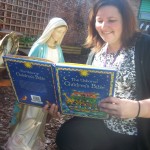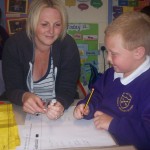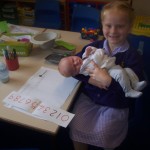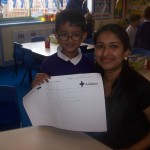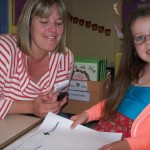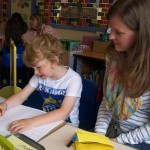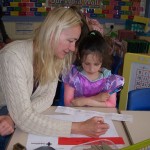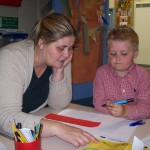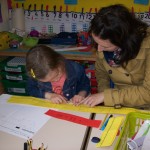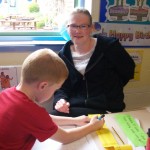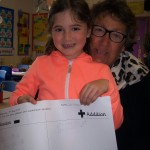Kenya Home Learning Points Challenge!!!
Due in: Monday 21st July 2014
You have 5 weeks to try to earn 50 home learning points.
You earn points by completing activities.
You can choose which activities you want to do and when.
□ Make a fruit salad or smoothie with a selection of African fruit. What fruit did you use and how did it taste? (10 points)
□ Make an African drum and practice drumming loudly and softly (10 points)
□ Learn some Swahili phrases (5 points)
□ Research and play a traditional African game e.g. Game Kisolo (10 points)
□ Make a sling to carry your baby dolls (5 points)
□ Junk model a car to take you on your Safari (5 points)
□ Choose a country in Africa and find out all about it. Maybe you could make a poster or book about it (25 points)
□ Can you find some African stories in your local library? (10 points)
□ Weaving and bead-work are traditional skills in Africa. Make something using these skills. (10 points)
□ Make a weather diary for Waterlooville over a few weeks. Think about how hot, windy and sunny it is. Find out about how this compares to Africa. (15 points)
□ Make African animals out of different shapes (5 points)
□ Visit Marwell Zoo. Write about/ draw something new you learnt (30 points)
□ Watch the Lion King and write a list of all the African animals you see in it. What is the environment like there? (5 points)
□ Find out about a charity that supports people in need in Africa. Can you do some fundraising for that charity? (25 points)
Bring in a shoe box….
After half term we will be making a ‘setting in a shoe box’ for our versions of the story ‘Where the Wild Things Are’.
Please can all year one children bring in a shoe box.
It doesn’t need to have a lid and it can be any size!
You are welcome to donate more than one.
Please name them and bring them in during the first week back after half term.
Thank you!
Home Learning over Half Term…
As part of our Summer Extreme Reading challenge we would like you to get ‘out and about’ reading over half term. If you are going to the beach for the day or down to the park for a picnic, why not take a book with you to read in the fresh air? Try to read something once a day- comics, magazines, food menus, leaflets all count too!
We also have until the 6th June to make the most of our Bug Club online reading books trial. If the trial is successful, and we have good feedback from children, parents and teachers, then we will be investing in this for September.
Please use this as much as you can over half term!
Letters and Sounds
As you will hopefully be aware the Phonics Screening Check is scheduled to take place in the week beginning 16th June. Please read as often as possible with your child, encouraging them to use all the sounds they know to sound out words and blend them together to read them. Encourage your children to play games such as ‘Buried Treasure’, ‘Picnic on Pluto’ and ‘Dragon’s Den’ on Phonics Play.
http://www.phonicsplay.co.uk/PicnicOnPluto.html
http://www.phonicsplay.co.uk/DragonsDen.html
http://www.phonicsplay.co.uk/BuriedTreasure2.html
Thank you for your support.
EXTREME READING!!!
Just a reminder that all children are invited to take a ‘selfie’ or have a picture taken of them reading in an ‘extreme’ situation.
Some examples are: hanging upside down, riding a horse, riding a bike, sailing, reading on a beach etc.
The idea is that it promotes reading for pleasure and the fact that reading can be done anywhere!
Here is a picture of Ms Ramsay reading in the Mary garden:
Please hand your extreme reading photos directly to Mrs D in the library.
Thank you!
Year One Summer Liturgy
We had our Year One Summer Liturgy this week on Tuesday.
Thank you to all the parents, grandparents and families for joining us.
Here is the prayer we said during the Liturgy:
Dear Lord,
Thank you for our special mummies and all that they do for us.
Thank you for taking care of us and being there for us.
Amen
Are you a maths champion?
Follow this link to play some excellent, age-appropriate maths games.
http://www.mathschamps.co.uk/games5-7
Try out the ‘Bop a Bot 1′ game to practise your subtraction skills!
Bug Club

Phonics Screening Check Week Beginning: 16th June 2014

The phonics screening check is a quick and easy check of your child’s phonics knowledge. It helps your school confirm whether your child has made the expected progress.
This year the check will take place during the week commencing Monday 16th June.
How does the check work?
Your child will sit with a teacher he or she knows and be asked to read 40 words aloud.
Your child may have read some of the words before, while others will be completely new.
The check normally takes just a few minutes to complete and there is no time limit. If your child is struggling, the teacher will stop the check. The check is carefully designed not to be stressful for your child.
What are ‘non-words’?
The check will contain a mix of real words and ‘non-words’ (or ‘nonsense words’). Your child will be told before the check that there will be non-words that he or she will not have seen before. Many children will be familiar with this because many schools already use ‘non-words’ when they teach phonics.
Non-words are important to include because words such as ‘vap’ or ‘jound’ are new to all children. Children cannot read the non-words by using their memory or vocabulary; they have to use their decoding skills. This is a fair way to assess their ability to decode.
What can I do to help my child?
We will be inviting all year one parents to attend a short talk in the hall on Tuesday 20th May at 10.15am, just before the year one liturgy. We will be able to advise you on different activities to support and prepare your child for the check. We will also have more information to share with you about the phonics screening check, along with some hand-outs you may find useful.
For more information about the phonics screening check, follow the link below:
https://www.gov.uk/government/collections/phonics
To view the training video on the phonics screening check, follow the link below:
Phonics Screening Check Training Video
To access free games which will support you child in practising reading real and ‘non-words’, follow the link below:
Helping your child with phonics
Phonics works best when children are given plenty of encouragement and learn to enjoy reading and books. Parents play a very important part in helping with this.
Some simple steps to help your child learn to read through phonics:
Ask your child’s class teacher about the school’s approach to phonics and how you can reinforce this at home. For example, the teacher will be able to tell you which sounds and words the class is covering in lessons each week.
You can then highlight these sounds when you read with your child. Teaching how sounds match with letters is likely to start with individual letters such as ‘s’, ‘a’ and ‘t’ and then will move on to two-letter sounds such as ‘ee’, ‘ch’ and ‘ck’.
With all books, encourage your child to ‘sound out’ unfamiliar words and then blend the sounds together from left to right rather than looking at the pictures to guess. Once your child has read an unfamiliar word you can talk about what it means and help him or her to follow the story.
Your child’s teacher will also be able to suggest books with the right level of phonics for your child. These books are often called ‘decodable readers’ because the story is written with words made up of the letters your child has learnt. Your child will be able to work out new words from their letters and sounds, rather than just guessing.
Try to make time to read with your child every day. Grandparents and older brothers or sisters can help, too. Encourage your child to blend the sounds all the way through a word.
Word games like ‘I-spy’ can also be an enjoyable way of teaching children about sounds and letters. You can also encourage your child to read words from your shopping list or road signs to practise phonics.
Most schools use ‘book bags’ and a home learning log, which is a great way for teachers and parents to communicate about what children have read. The home learning log can tell you whether your child has enjoyed a particular book and shows problems or successes he or she has had, either at home or at school.
Home Learning 9.4.14
Next week we will be learning about the Buddhist festival ‘Wesak’.
Wesak is the most important of the Buddhist festivals and is celebrated on the full moon in May.
It celebrates the Buddha’s birthday, and, for some Buddhists, also marks his enlightenment and death.
Could you find out about Buddhism and this religious festival?
You might like to make a ‘Wesak’ lantern.
Or you could find out about their chants and prayers.
Here are some useful websites:
http://www.bbc.co.uk/schools/religion/buddhism/buddha_day.shtml
http://www.buddhamind.info/leftside/actives/vesak-lite.htm




